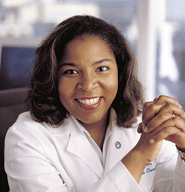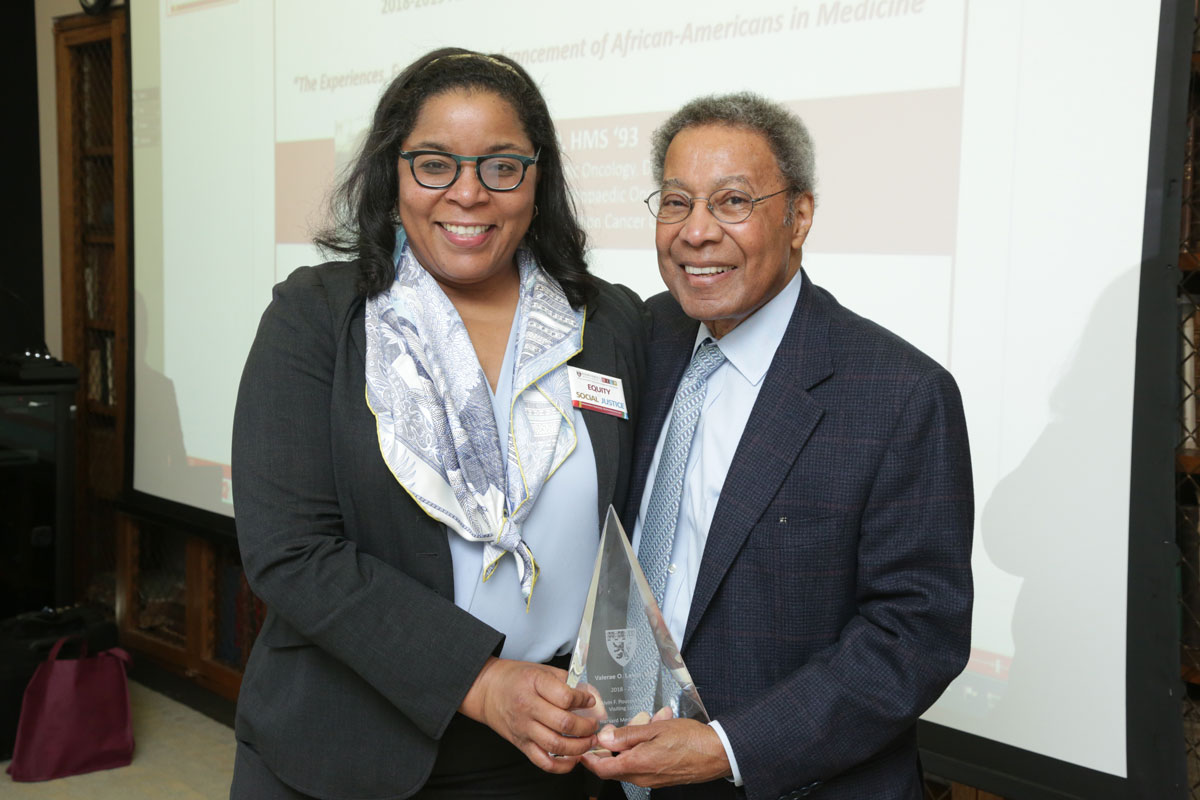Graduated Harvard Medical School Class of 1993
Dr. Valerae O. Lewis grew up in the Bronx, New York City, and, from a young age, wanted to be a doctor. She attended Yale University, where she graduated with a degree in Psychobiology. She graduated from Harvard Medical School in 1993 with honors and completed her orthopaedic training at the Harvard Combined Orthopaedic Residency Program.
Since 2000, Dr. Lewis has been at The University of Texas MD Anderson Cancer Center, where she continues to be a trailblazing figure in medicine. She was named the Dr. John Murray Professor in Orthopaedic Oncology in 2010. She was the first African-American woman to be awarded the MD Anderson Faculty Achievement Award in Patient Care (2012); first woman to chair an orthopaedic department at a freestanding cancer center (2014); first woman to chair an orthopaedic department in The University of Texas System (2014); and the first African-American woman to chair an Orthopaedic Surgery Department.
“I never wanted to be anything else but a doctor. I mean, I will say that I wanted to own a gas station, and I wanted to be a carpenter on weekends, but I always knew that I wanted to be a doctor. … My dad …still made house calls probably till his late seventies.”
“So I remember mailing in the Yale postcard and putting no on the Harvard one. And then I came back to my -- the car, and my mom asked where I said I was gonna go, and I said Yale. And she just started crying, and she goes, “I just wanted one of my daughters to go to Harvard!” So I felt really bad, ’cause it was probably a silly argument, and so I said, “OK, I promise I’ll go to Harvard Medical School.””
“So one of the things I remember is you’re applying to residency program, you know, and as a women -- woman, and as an African American woman applying to orthopedics, it can be a little daunting ’cause it’s generally all white male. And I remember I read the -- one of the recommendations from one of the orthopedic faculty, and just the last -- the last paragraph, but it was glowing. And it just made me feel like I can do this, like I am just as good as the rest of these boys out here.”
“Harvard’s orthopedic program is actually a combination of Mass General, BI Deaconess, Brigham, and Texas Children... And that was a great residency. It was a very diverse residency, compared to other residencies at the time. There was at least one to two women a year, and one to two African Americans or people of color a year. Really, we have Gus White and Henry Mankin to thank for that.”
“I really started as assistant professor and worked my way up to become the John Murray Professor of Orthopedic Oncology, but also chair of an orthopedic oncology department. And it was exciting, ’cause there are no other black women chairs of orthopedics, and there aren’t any other women chairs in surgery in the whole UT system, and UT system is very large. “
“But what’s interesting is -- and I included it in my talk -- all the stories, or many of the stories, of the African American physicians back in the early ’60s, you know, even early ’20s, the obstacles they’d face are still present with many of the African Americans today.“
“As I get older, you realize the importance of including and bringing up more people like yourself, because as you get higher and higher in the administrative echelon you realize there are fewer and fewer people who look like you. And then you combine that with all the studies that show that diversity breeds innovation, and innovation breeds success, that you’re even more encouraged to go and make a diverse workforce or a diverse administrative team.”

